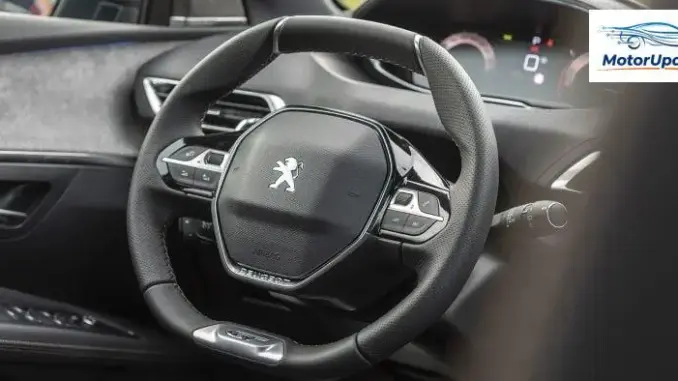
Have you ever ignored a warning light? It often feels harmless. But sometimes the light protects your wallet and the environment. Stellantis has recalled over 700,000 diesel cars because a malfunction light may fail to illuminate.
What is the fault?
What if your car’s warning light does not turn on? In some Stellantis diesels, the MIL (malfunction indicator lamp) may not light when the emissions systems fail. The defect affects the SCR (selective catalytic reduction) and the DPF/FAP (diesel particulate filter). That lacks regulatory compliance and can hide pollution issues.
Why this recall matters
Could this be just an annoyance? Not really. The issue prevents drivers from being alerted to emissions system failures. That is like a smoke detector that stays silent during a fire. Hidden faults can worsen and lead to expensive repairs later. Regulators also require correct warning signals to limit excess pollution.
How Stellantis handles it
What will the dealer do? The fix is a software update to the engine control unit (ECU). The update usually takes less than 30 minutes. It is free for owners. Stellantis is contacting owners and listing recalls on brand recall tools.
Which engines are affected?
Three diesel engines are involved. They are the 1.5 BlueHDi, the 2.0 HDi and the 2.2 HDi. These engines were fitted across many models from 2016 to 2024. That wide production window explains the large recall volume.
Numbers by brand
How many cars in total? Global figures show 711,596 vehicles recalled. They break down as follows:
- Citroën: 250,497 (campaign GK2)
- DS: 21,130 (campaign GK2)
- Opel: 97,770 (campaign KT2)
- Peugeot: 341,749 (campaign MYC)
Which models are included?
Want a quick check for your car? Use the VIN on the registration document or at the base of the windshield. Each brand has an online recall lookup. Here are the affected models and their production ranges.
Citroën (production 15 Mar 2018 – 30 Apr 2024)
Major models include:
- C3 (third generation)
- C-Elysée
- C3 Aircross (first generation)
- C4 Cactus
- Berlingo (third generation)
- C4 Picasso / C4 SpaceTourer (second generation)
- C5 Aircross (first generation)
- Jumpy (third generation)
DS Automobiles (production 27 Mar 2017 – 15 Nov 2022)
Affected DS models:
- DS 3 / DS 3 Crossback (second generation)
- DS 7 / DS 7 Crossback
Opel (production 8 Sep 2017 – 19 Oct 2023)
Affected Opel models:
- Corsa (sixth generation)
- Crossland X / Crossland
- Combo (fifth generation)
- Grandland X / Grandland (first generation)
- Zafira (fourth generation) / Vivaro (third generation)
- Movano (third generation)
Peugeot (production 14 Oct 2016 – 11 Oct 2021)
Large list at Peugeot includes:
- 208 (first and second generation)
- 2008 (first and second generation)
- 301
- 308 (second and third generation)
- Rifter / Partner (third generation)
- 3008 (second generation)
- 508 (first and second generation)
- 5008 (second generation)
- Traveller / Expert (third generation)
- Boxer (third generation)
How to check if your car is affected
Do you have the VIN ready? That is the fastest way. Look for the VIN at the letter E on your registration document or at the windshield base. Go to the recall lookup tool on Citroën, DS, Opel, or Peugeot websites. Repeat the check later if the recall list updates slowly.
What owners should do
Should you rush to the dealer? Book an appointment but avoid panic. The intervention is a quick ECU software update. It is performed free of charge. Dealers may stagger scheduling to avoid workshop congestion.
Regulatory and practical context
Is this linked to other recalls? Stellantis previously handled Takata airbag recalls. This new campaign is separate and mainly environmental. It follows stricter scrutiny of diesel emissions since the dieselgate era. New technical inspection rules might tighten in 2026, increasing the importance of cleared recalls.
See also: Used Car Market Thrives in Third Quarter 2025
Real-world example
Imagine a DPF failing quietly during a long trip. You might keep driving for months. Small soot build-up turns into a jammed filter. Repair costs then escalate. A working MIL is like a guardrail. It warns you before costs skyrocket.
Conclusion
Stellantis recall affects over 700,000 diesel vehicles worldwide. The issue: the MIL may not light for SCR or DPF/FAP faults. The remedy is a free, brief ECU software update at dealers. Check your VIN on the brand recall sites. Act promptly to avoid higher repair bills and to meet emissions rules.

Leave a Reply